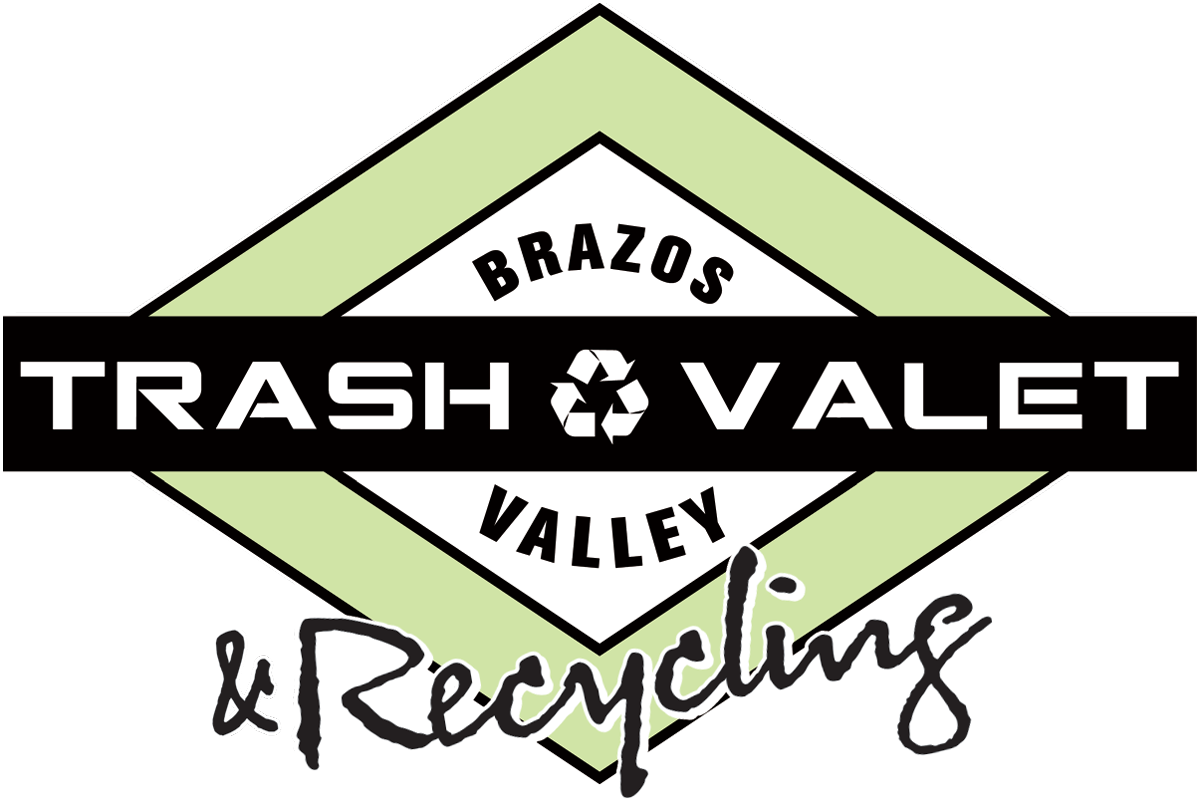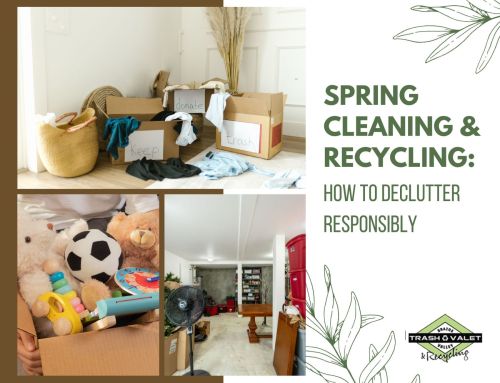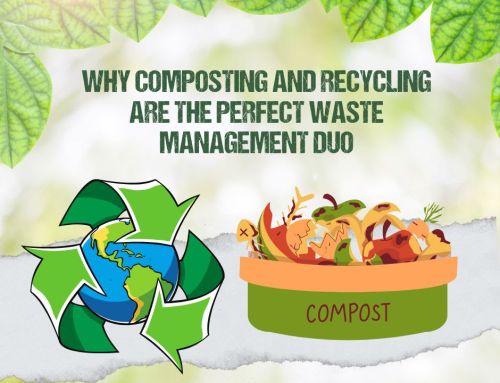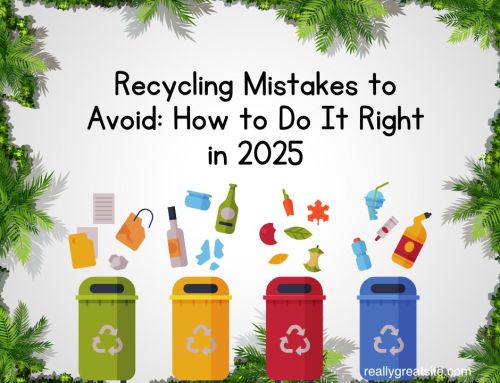How Should I Dispose of Used Batteries?
Batteries may be a common household item, but that doesn’t mean they are fully understood. There are many misconceptions about batteries, especially when it comes to battery disposal. Many consumers don’t realize that the proper disposal of batteries varies depending on the type of battery in question.
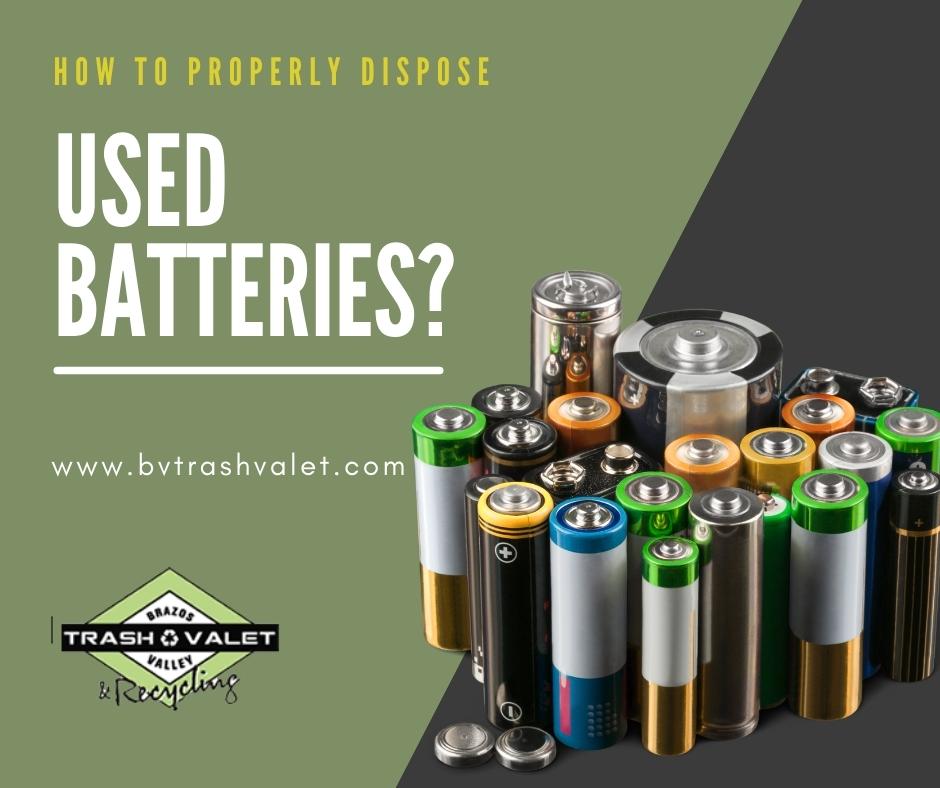
Alkaline Batteries
Alkaline batteries are the most recognized household battery. They come in numerous sizes, but you are likely most familiar with AA and AAA. These are the batteries in your remotes, flashlights, smoke alarms, and children’s toys. These batteries are considered non-hazardous compared to other battery types, and they can be thrown in the trash unless your local regulations state otherwise. Of course, we recommend recycling through the appropriate channels.
Rechargeable Batteries
Rechargeable batteries cannot be thrown away. This is because they contain both nickel and cadmium, which are hazardous to the environment. If these batteries are placed in the garbage, then the trash disposal process will release the contents of the batteries. Instead, take your rechargeable batteries to a recycling plant or to an electronics dealer that does its own battery recycling.
Button Batteries
Button batteries are the circular type found in watches and hearing aids. These contain highly hazardous materials and must be disposed of at a household hazardous waste collection facility or recycling plant. These should never be placed in the trash.
Lithium-ion Batteries
Lithium-ion batteries are commonly found in laptops, tablets, phones, and other electronics. These batteries should be taken to a hazardous waste collection site, recycler, or even donated to a battery refurbisher. Some electronic retailers will accept donations of lithium-ion batteries, so that can be worth a quick call.
Car Batteries
Car batteries contain lead-acid and thus cannot be disposed of through the garbage or regular recycling. A few disposal options are to take them into an auto parts dealer or bring them to a waste disposal or recycling facility that accepts hazardous waste.
At Brazos Valley Trash Valet & Recycling, we understand that following proper disposal for waste can be time-consuming. However, we appreciate the difference you make every day in helping to make the Earth just a little greener! As always, for any trash or recycling questions, feel free to contact us!
Share This Story, Choose Your Platform!
How Should I Dispose of Used Batteries?
Batteries may be a common household item, but that doesn’t mean they are fully understood. There are many misconceptions about batteries, especially when it comes to battery disposal. Many consumers don’t realize that the proper disposal of batteries varies depending on the type of battery in question.

Alkaline Batteries
Alkaline batteries are the most recognized household battery. They come in numerous sizes, but you are likely most familiar with AA and AAA. These are the batteries in your remotes, flashlights, smoke alarms, and children’s toys. These batteries are considered non-hazardous compared to other battery types, and they can be thrown in the trash unless your local regulations state otherwise. Of course, we recommend recycling through the appropriate channels.
Rechargeable Batteries
Rechargeable batteries cannot be thrown away. This is because they contain both nickel and cadmium, which are hazardous to the environment. If these batteries are placed in the garbage, then the trash disposal process will release the contents of the batteries. Instead, take your rechargeable batteries to a recycling plant or to an electronics dealer that does its own battery recycling.
Button Batteries
Button batteries are the circular type found in watches and hearing aids. These contain highly hazardous materials and must be disposed of at a household hazardous waste collection facility or recycling plant. These should never be placed in the trash.
Lithium-ion Batteries
Lithium-ion batteries are commonly found in laptops, tablets, phones, and other electronics. These batteries should be taken to a hazardous waste collection site, recycler, or even donated to a battery refurbisher. Some electronic retailers will accept donations of lithium-ion batteries, so that can be worth a quick call.
Car Batteries
Car batteries contain lead-acid and thus cannot be disposed of through the garbage or regular recycling. A few disposal options are to take them into an auto parts dealer or bring them to a waste disposal or recycling facility that accepts hazardous waste.
At Brazos Valley Trash Valet & Recycling, we understand that following proper disposal for waste can be time-consuming. However, we appreciate the difference you make every day in helping to make the Earth just a little greener! As always, for any trash or recycling questions, feel free to contact us!
